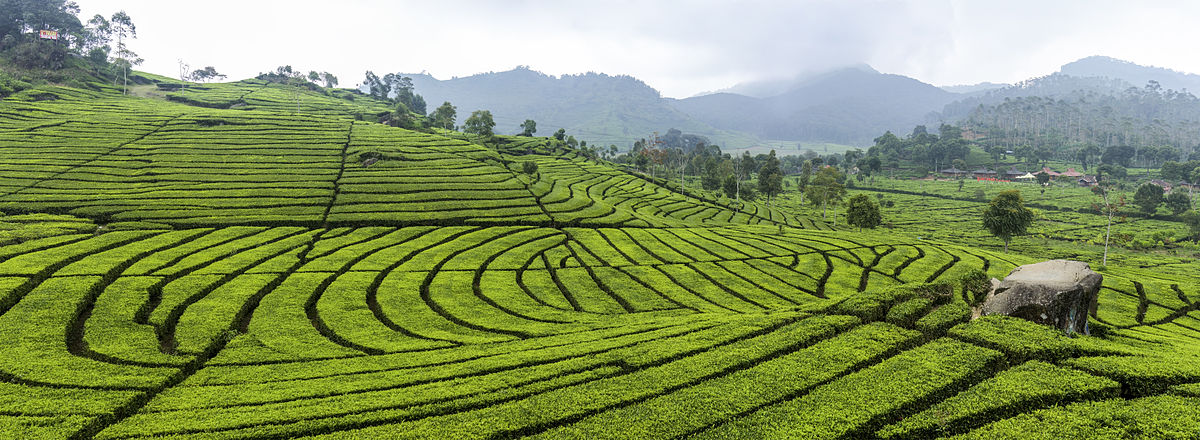Tea is, perhaps more than any other drink, deserving of the title of the nation’s favourite. But when it comes to consuming the stuff, we’re actually very fussy – preferring only a very narrow band on the vast tea spectrum. Let’s take a look at the nation’s favourite drink, and see if we can unpack how it came to be – and where the best place to drink it is.
When was tea first discovered?
Its difficult to pinpoint the first moment at which someone decided that stewing a given sort of leaf in water and then drinking it would be a good idea. The most likely theory holds that it came to be in Shang-dynasty China, thousands of years ago. To begin with, it was probably considered a principally medicinal drink – it wasn’t until much later that it was enjoyed recreationally.
When was tea first brought to the UK?
While we might now consider tea to be about as British as chips and gravy (and, for that matter, tikka masala), it’s only a relatively recent addition to the cultural landscape, here, coming about during the 17th century, after the Chinese delivered the drink to the west via Portuguese priests. By the late 19th century, around 90% of tea in Britain came from China – but this monopoly was soon reversed as the British began to aggressively introduce tea production in India, in order to undermine the competition. Consequently, many varieties of the teas we now enjoy originate in India, and are named after places there.
What Types of Tea are there?
There are more than a thousand different varieties of tea, and a few thousand more drinks that, while labelled as tea, are technically just plants stewed in hot water for a while. For the most part, however, teas fall into four distinct categories. There’s green tea, there’s black tea, there’s white tea, and there’s oolong. Let’s take a brief look at each of them.
Black tea
This variety of tea is heavily oxidised, which is what lends it that darker colour. In China, it’s known as ‘red tea’, and if you consider it for a moment it’s easy to see why; it’s a dark red before you add that splash of milk. You’ll find famous varieties of tea like Assam, Ceylon and Darjeeling in this category, as well as blends of those varieties which we know as breakfast tea, afternoon tea, and Earl Grey to which additional ingredients like bergamot oil and cardamom are added to create entirely new drinks.
Green tea
Green tea is another variety that’s far less popular in the UK. It’s not undergone the oxidation process used to make other varieties, and thus carries more of the natural green pigment of the tea plant. Like other varieties of tea, its production began in China before spreading to India. Green tea has long been considered a crucial component of a balanced diet, with a Zen priest named Eisai describing how drinking it might improve the function of several vital organs as far back as 1191.
White tea
This category of tea is a little vaguer, containing several different styles of the stuff. The most widely-agreed-upon definition holds that white tea is simply dried, without any additional processing. This lack of processing and oxidation leads to a flavour profile that’s far lighter than you might expect from equivalent black or green teas.
Oolong tea
Oolong tea is similar to black tea in that it undergoes withering and oxidation prior to brewing. The precise degree of oxidation varies considerably, from 8% for some varieties to more than 80% for others. It’s favoured among Chinese connoisseurs, thanks to the sheer variety of flavours it’s capable of imparting. The English name ‘oolong’ stems from the Chinese word for ‘black dragon’; in China the variety is known as quingcha, or ‘dark green tea’.
Where can I get the best tea?
Fortunately, Britain is blessed with a superabundance of tea rooms, and thus anyone looking to enjoy the nation’s favourite beverage as it’s meant to be enjoyed will be able to do so without much trouble. Among the best tea houses in the country are to be found, perhaps unsurprisingly, in the nation’s capital. Some of them, to be sure, aren’t technically tea-houses, as they’re entirely mobile. If your looking to enjoy a spot of afternoon tea while on a boat trip on Thames, for example, then you’ll be able to do so courtesy of Bateaux London. You’ll find an abundance of them operating daily.


No Comment